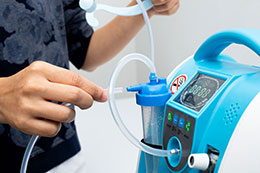 Adhesives are often used in a wide variety of medical devices, such as single use (disposable) equipment or repeated use devices requiring sterilization resistance.
Adhesives are often used in a wide variety of medical devices, such as single use (disposable) equipment or repeated use devices requiring sterilization resistance.
Within the medical industry, there are many life support machines that require filters for cleaning or altering the properties of a patient’s blood. These machines help the body compensate when there is failure of one or more vital organs in the patient.
One example of such a machine is ECMO (Extracorporeal Membrane Oxygenation). This machine pumps blood from the patient’s body, runs it through an oxygenator, and pumps it back into the body. The oxygenator adds oxygen and removes carbon dioxide from the blood, which mimics the lungs.
Hemodialysis is another procedure where the properties of blood are changed. In this case, the blood is pumped out of the patient’s body, filtered (mimicking the kidney), and pumped back in.
Epoxies, silicones, cyanoacrylates, and light curing adhesives can play a vital role in these membrane devices. Master Bond offers a variety of materials that meet stringent biocompatibility standards such as ISO 10993-5 for cytotoxicity and the USP class VI specifications. These materials can be used for sealing oxygenators, assembling needles, and many more purposes.
Examples of biocompatible systems:
| Product | Chemistry | Key Features | Biocompatibility Rating |
| EP3HTMed | One component, heat curing epoxy | No mixing needed Autoclave resistant |
USP Class VI and ISO 10993-5 |
| EP42HT-2Med | Two component, room temperature/moderate heat curing epoxy | Excellent resistance to chemicals and sterilizations Good flow profile |
USP Class VI and ISO 10993-5 |
| MB297Med | One component, cyanoacrylate | Fast setting at room temperature Good flow profile |
USP Class VI |
| UV18Med | One component, UV curing system | Fast curing with UV light Good chemical resistance Toughened/flexible |
USP Class VI |
For help finding the right adhesive for your blood filtering device, please contact our technical support team.
Disclaimer: It must be noted that none of these adhesives are designed to handle direct exposure to oxygen.
